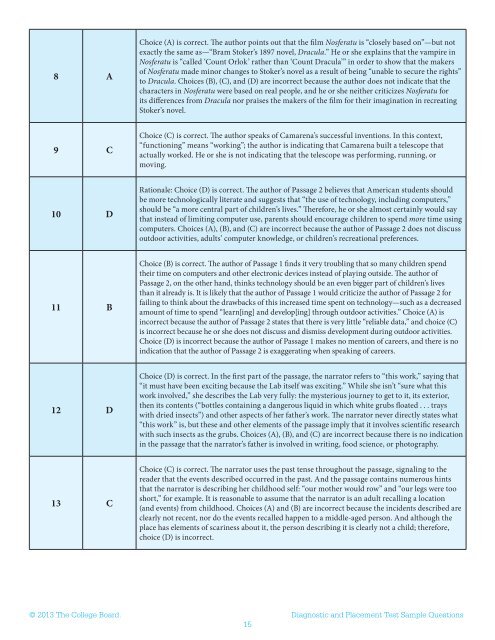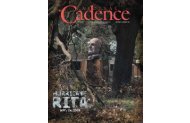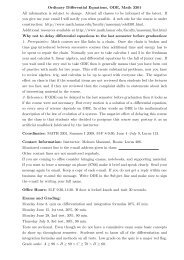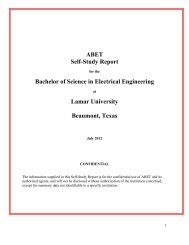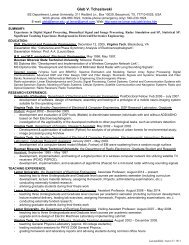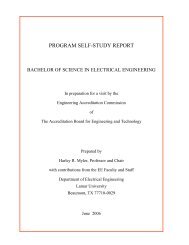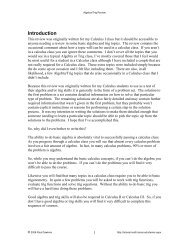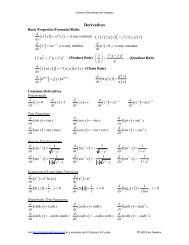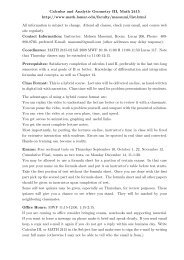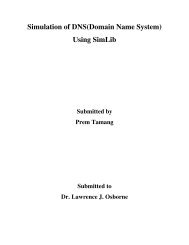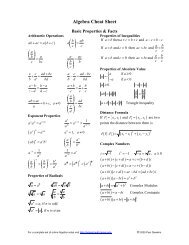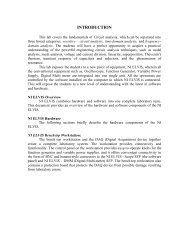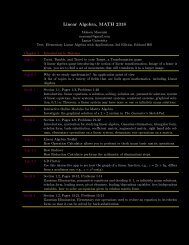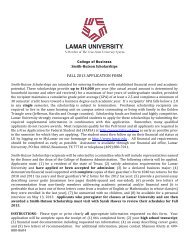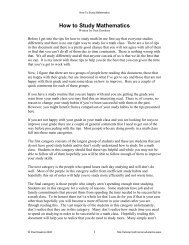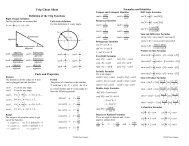TSI sample questions
TSI sample questions
TSI sample questions
- No tags were found...
Create successful ePaper yourself
Turn your PDF publications into a flip-book with our unique Google optimized e-Paper software.
8 A<br />
Choice (A) is correct. The author points out that the film Nosferatu is “closely based on”—but not<br />
exactly the same as—“Bram Stoker’s 1897 novel, Dracula.” He or she explains that the vampire in<br />
Nosferatu is “called ‘Count Orlok’ rather than ‘Count Dracula’” in order to show that the makers<br />
of Nosferatu made minor changes to Stoker’s novel as a result of being “unable to secure the rights”<br />
to Dracula. Choices (B), (C), and (D) are incorrect because the author does not indicate that the<br />
characters in Nosferatu were based on real people, and he or she neither criticizes Nosferatu for<br />
its differences from Dracula nor praises the makers of the film for their imagination in recreating<br />
Stoker’s novel.<br />
9 C<br />
Choice (C) is correct. The author speaks of Camarena’s successful inventions. In this context,<br />
“functioning” means “working”; the author is indicating that Camarena built a telescope that<br />
actually worked. He or she is not indicating that the telescope was performing, running, or<br />
moving.<br />
10 D<br />
Rationale: Choice (D) is correct. The author of Passage 2 believes that American students should<br />
be more technologically literate and suggests that “the use of technology, including computers,”<br />
should be “a more central part of children’s lives.” Therefore, he or she almost certainly would say<br />
that instead of limiting computer use, parents should encourage children to spend more time using<br />
computers. Choices (A), (B), and (C) are incorrect because the author of Passage 2 does not discuss<br />
outdoor activities, adults’ computer knowledge, or children’s recreational preferences.<br />
11 B<br />
Choice (B) is correct. The author of Passage 1 finds it very troubling that so many children spend<br />
their time on computers and other electronic devices instead of playing outside. The author of<br />
Passage 2, on the other hand, thinks technology should be an even bigger part of children’s lives<br />
than it already is. It is likely that the author of Passage 1 would criticize the author of Passage 2 for<br />
failing to think about the drawbacks of this increased time spent on technology—such as a decreased<br />
amount of time to spend “learn[ing] and develop[ing] through outdoor activities.” Choice (A) is<br />
incorrect because the author of Passage 2 states that there is very little “reliable data,” and choice (C)<br />
is incorrect because he or she does not discuss and dismiss development during outdoor activities.<br />
Choice (D) is incorrect because the author of Passage 1 makes no mention of careers, and there is no<br />
indication that the author of Passage 2 is exaggerating when speaking of careers.<br />
12 D<br />
Choice (D) is correct. In the first part of the passage, the narrator refers to “this work,” saying that<br />
“it must have been exciting because the Lab itself was exciting.” While she isn’t “sure what this<br />
work involved,” she describes the Lab very fully: the mysterious journey to get to it, its exterior,<br />
then its contents (“bottles containing a dangerous liquid in which white grubs floated . . . trays<br />
with dried insects”) and other aspects of her father’s work. The narrator never directly states what<br />
“this work” is, but these and other elements of the passage imply that it involves scientific research<br />
with such insects as the grubs. Choices (A), (B), and (C) are incorrect because there is no indication<br />
in the passage that the narrator’s father is involved in writing, food science, or photography.<br />
13 C<br />
Choice (C) is correct. The narrator uses the past tense throughout the passage, signaling to the<br />
reader that the events described occurred in the past. And the passage contains numerous hints<br />
that the narrator is describing her childhood self: “our mother would row” and “our legs were too<br />
short,” for example. It is reasonable to assume that the narrator is an adult recalling a location<br />
(and events) from childhood. Choices (A) and (B) are incorrect because the incidents described are<br />
clearly not recent, nor do the events recalled happen to a middle-aged person. And although the<br />
place has elements of scariness about it, the person describing it is clearly not a child; therefore,<br />
choice (D) is incorrect.<br />
© 2013 The College Board. Diagnostic and Placement Test Sample Questions<br />
15


